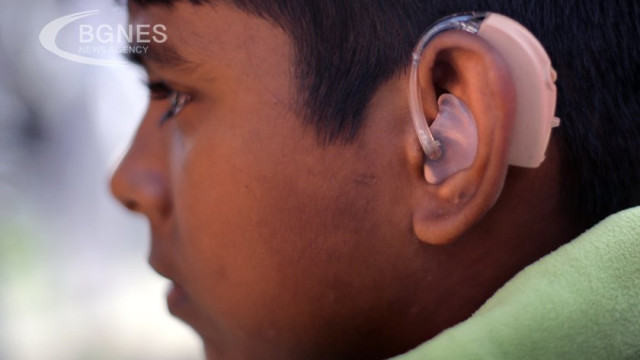A gene therapy that has enabled several children born deaf to hear for the first time has been hailed as a "rule changer" raising hopes for the first new treatment for hereditary deafness in decades.
Several medical teams around the world are trialing the procedure, which targets a rare genetic mutation that affects only a small number of the world's 26 million people with congenital deafness.
But several successful trials announced this week are already being considered a tipping point.
On Tuesday, the Children's Hospital of Philadelphia revealed that 11-year-old Aysam Dam, who was born deaf, is now "literally hearing sound for the first time in his life."
Aisam still has mild to moderate hearing loss and may never learn to speak, as the brain's window for acquiring speech closes around the age of five.
But in China, where the results of a similar study were published in the journal The Lancet, a similar treatment was carried out on six younger children.
According to the results of the trial, which began in 2022, five of them gained the ability to hear, making it the first in which the gene therapy was tested on humans.
Some of the children were already able to speak thanks to a cochlear implant - which they now no longer need, study co-author Zheng-Yi Chen of the Massachusetts Eye and Ear Infirmary told AFP.
But one of them, a baby just one-year-old, had never been able to communicate verbally, Chen said. Chen said that after the treatment, when the mother asked the baby, ``Who am I?'', the baby replied, ``Mom.'' When asked what a chicken sounds like, the baby replied, ``Koo-koo.'' is really amazing," Chen said, adding that the baby is expected to grow up to speak normally.
Such advances have not been made in the 60 years since cochlear implants were invented, Chen says, adding that the therapy "symbolizes a new era in the fight against all types of hearing loss."
So far, trials in China, the United States, and others announced this week in France are using a similar technique that focuses on people born with a mutation in the OTOF gene.
This defect means they can no longer make the protein otoferlin, which is needed by hair cells in the inner ear to convert sound vibrations into electrical signals that can be sent to the brain.
The treatment involves injecting a harmless virus into the inner ear that inserts a working version of the OTOF gene, restoring hearing.
The trial in France will focus on babies aged 12-31 months in the hope that it can "enable the acquisition of language", said Naval Uzren, chief executive of the company Sensorion, which is developing the treatment.
But this treatment will only help a small proportion of those born deaf.
About one in 1,000 children are born deaf due to gene defects, but the lack of otoferlin is the cause of only about three percent of these cases.
More than 150 other genes have been found to cause genetic hearing loss.
So far, otoferlin treatment appears to work just as well in humans as it does in mice -- which isn't always the case in such studies.
Trials in mice targeting other gene defects that cause hearing loss have also been successful, Chen says.
Researchers hope this first treatment will pave the way for others.
The French Pasteur Institute, which pioneered otoferlin research, and Sensorion are already working on another therapy targeting a gene whose mutations cause the most common forms of hereditary deafness./BGNES







